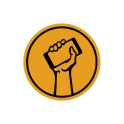Reform needed: Two individuals in positions of power shielded by name suppression
18 September 2025
FOR IMMEDIATE RELEASE
Reform needed: Two individuals in positions of power shielded by name suppression
Two public figures charged with crimes have been granted name suppression this week, limiting the media’s ability to report on the cases and the public’s chance to assess the facts for themselves. Name suppression continues to limit Kiwis’ speech rights and weakens their trust in institutions and the courts, says Jillaine Heather, Chief Executive of the Free Speech Union.
“This week, name suppression was granted to a Bay of Plenty police officer charged with unlawfully accessing a police intelligence system and a Northland leader who was charged with assault. We continue to stand by the belief that suppression does more harm than good.
“When name suppression is applied to those in positions of power, shielding those who have done wrong, the public is unable to assess the facts and form their own opinions. This undermines the accountability of our leaders, which is a crucial function of our democracy. It can also unjustly limit the speech rights of the victims.
“We continue to hold concerns that suppression has created a two-tier justice system where it’s more readily applied to the wealthy and powerful, keeping the ‘little people’ in the dark. Ordinary Kiwis rarely benefit from these protections, yet they’re the ones most impacted when secrecy fuels rumours.
“These two cases of name suppression have come at a time when speculation continues to run rampant over suppressed details of the Tom Phillips case. We accept that suppression orders can serve legitimate purposes, especially in cases involving the welfare and privacy of children, but they can often just make matters worse and don’t protect the vulnerable as intended.
“This week, Minister of Justice Paul Goldsmith said he was open to law change in this area. We urge him to consider the negative impacts of suppression orders, and to stand by the principle that Kiwis are always better off when speech is free.”








